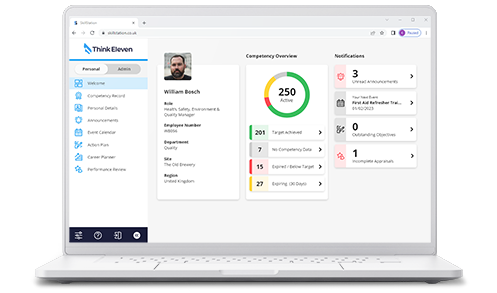The Investigational New Drug Application (IND) to Conduct FDA-regulated Clinical Trials (CT10) eLearning Course
Learning Objective
An Investigational New Drug Application (IND) is a submission to the US Food and Drug Administration (FDA) for permission to conduct a clinical trial of a medicinal product. This module describes regulatory requirements that sponsors or sponsor-investigators must meet for successful compilation, filing and maintenance of INDs. The IND and its role are defined, and the contexts in which it is required are specified.
The information that must be included and the format in which it needs to be presented are outlined. The process of review by the FDA is described, and the outcomes and sponsor’s responses are discussed. The actions necessary to maintain an open IND are set out.
Finally, the regulatory provisions for expanded-access use of investigational drugs are described.
Who will benefit from this module?
Regulatory affairs professionals and other staff of pharmaceutical or biotechnology companies involved in clinical development of medicinal products; and
Healthcare professionals conducting clinical research as sponsor-investigators or who wish to treat patients under an expanded-access scheme.
Learning Objectives
- Specify the role of an IND and the contexts in which it is required
- Access key regulatory documents relating to INDs
- Describe the contents and format of an IND submission
- Describe the process of FDA review of an IND, the possible outcomes and sponsor’s responses
- Identify actions necessary to maintain an active IND
- Specify options for expanded-access use of investigational drugs
Module Outline
Module overview - An outline of the module’s scope and objectives, and notes on terminology.
Introduction to Investigational New Drug Applications (INDs) - This session explains the role and legal status of an IND, sets out the contexts in which one must be filed, summarises the responsibilities of sponsors and investigators, and outlines the pre-submission process.
IND content and format requirements - This session sets out IND contents required by regulations and describes how these are incorporated in a CTD-formatted submission. The significance of the FDA forms 1571 and 1572 are discussed. The major components of an application are outlined: general investigational plan, investigator’s brochure, clinical protocol, Quality/CMC information, nonclinical data, and clinical information.
Filing and FDA review - Options and requirements for submission of an IND are set out, and the review procedure and its outcomes are described. The roles of FDA reviewers are outlined. The significance of a clinical hold and the sponsor’s response to a hold are discussed.
Maintenance of an IND - This session identifies the various types of IND amendments and reports: protocol amendments, IND safety reports, annual reports, and information amendments. It explains when they need to be made and outlines the regulations that govern them. The responsibilities of sponsors and investigators to report safety findings are described, as are requirements for financial disclosure and record retention.
Expanded-access use - This session describes the various types of expanded-access use of investigational drugs to treat patients outside of clinical trials and sketches a scenario of emergency use.
Assessment - Multiple-choice mastery assessment.
This course has a minimum of 25 learner registrations for us to provide a quotation.
Request a Quotation- Language
- UK
- Date last updated
- 5/20/2024
- Duration
- 3 Hours
- Suitable Devices
-
- PC
- Tablet
- Audio is Required
-
- Optional
- Includes Video
-
- No
- Downloadable Resources
-
- Factsheets
- Linked within Course
- Transcripts
- Completion Criteria
-
- Complete all modules
- Multiple Choice Assessment
- Pass Mark
-
- 75% pass mark required
- Course Technology
-
- HTML5
- SCORM 1.2
- Can be customised
-
- Available at an Additional Cost
- Accreditation or Endorsements
-
- CPD
- Languages
-
- English
